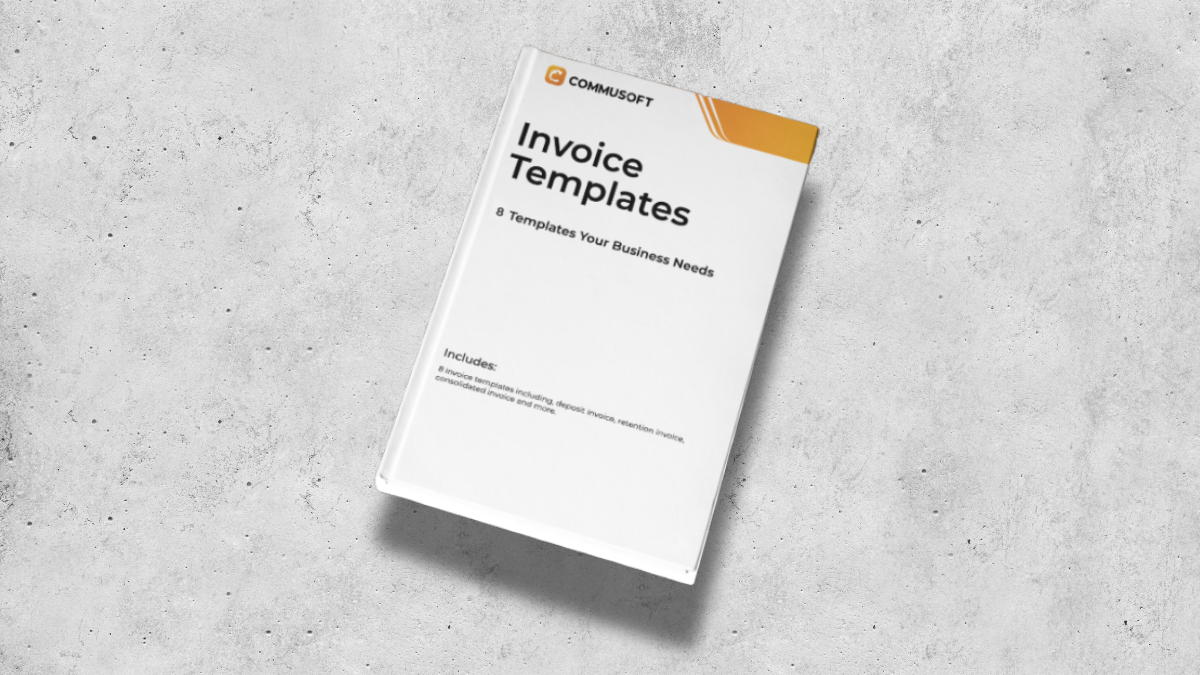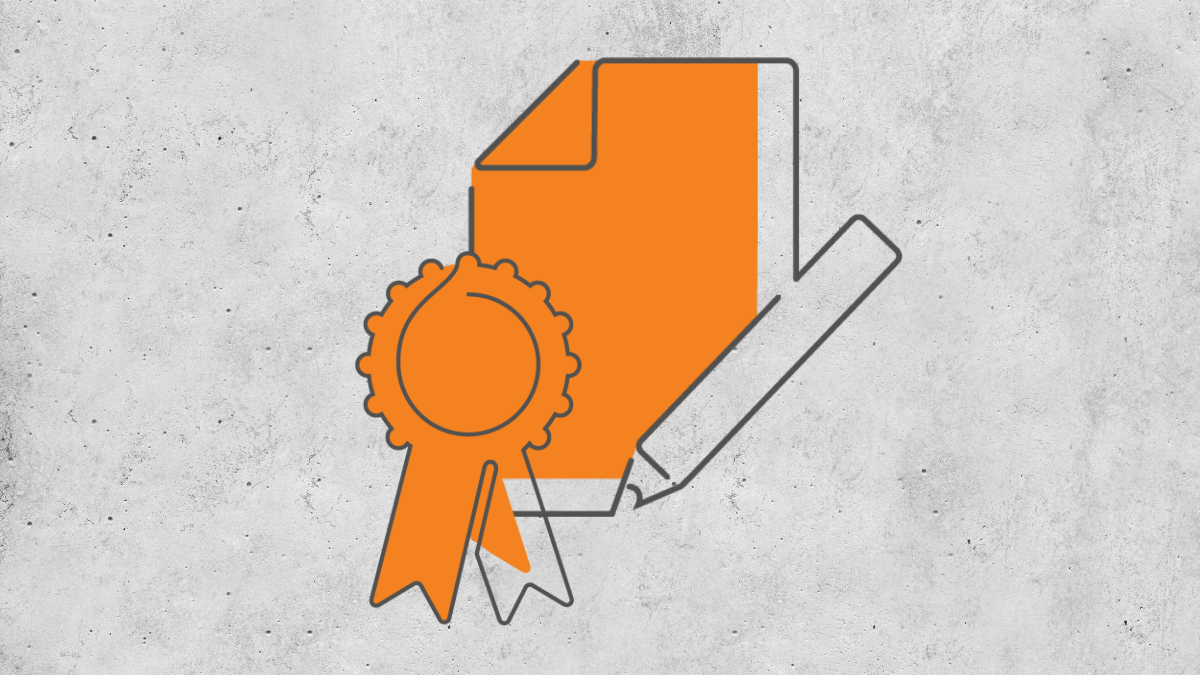Secure Financial Stability with Annual Recurring Revenue
April 24, 2024 | Read: 11 minutes

What comes to mind when you think about annual recurring revenue (ARR)?
Maybe it’s long-term subscriptions or fixed contracts. But have you thought about the benefits it could bring to your business?
Think financial stability, predictable profit, and better scheduling. These are just a few advantages that ARR can offer…
These days, you can get a subscription for just about anything, but not every trades business is making the most of these valuable opportunities.
While there are plumbing, heating, and electrical businesses who offer regular maintenance plans to cover boilers, heat pumps, or EV stations, managing a reliable recurring revenue stream can be another story.
Below, we’ll explore how you can manage your reliable recurring revenue and, whether it’s annual or monthly, use it to create a stronger business.

What is Annual Recurring Revenue?
Annual Recurring Revenue (also known as ARR), is the guaranteed, repeatable revenue that your business generates every year. Income like this is usually the result of a contract-based service agreement between a business and its customer.
This type of income, alongside Monthly Recurring Revenue (MRR) can grant your business greater financial stability. It makes it clear how much is coming in to a business, and when.
Of course, there’s more to it than just money:
This approach not only ensures a steady flow of income but also builds a long-term relationship with your customers.
Ryan Esco, Chief Marketing Officer, FireRock Marketing
With regular income that’s generated by a loyal customer base, it’s about build a secure, sustainable business that benefits employees and customers alike.
What Types of Recurring Revenue are there?
Recurring revenue can come to your business in a few different ways. Some methods are easily predictable while others may require a bit more effort to put in place.
Either way, recurring revenue can help your business to secure a lot of profit!
Service Reminders
While a service reminder itself is not a direct source of recurring revenue, it can help you get it.
After all, a service reminder is a notice (usually an email, letter or SMS) sent to a customer to let them know that a particular service is due. Service appointments are usually for regular maintenance of a particular asset that a customer has installed.
By sending a service reminder at the right time and highlighting the cost, you can give customers a helpful nudge to book an appointment with your business. If they have an asset that needs to be assessed yearly, then annual service reminders can help you secure their business as predictable recurring revenue.
However, compared to contracted work, a service reminder isn’t a guarantee of income…
Take a look! Try our service reminder calculator to see how much you could make.
Service and Maintenance Contracts
Reminders are useful, but on the other hand are maintenance contracts.
Sometimes called a “service contract” or “maintenance agreement”, these are binding arrangements between your business and your customer. Planned maintenance software can help your team manage all aspects of customer agreements.
Contracts typically outline the terms and conditions of the service you provide and will state the annual and/or monthly cost a customer pays for these services.
A simple contract, for example, could cover a boiler service for a residential customer. Rather than manually pitch the customer every year (as with the service reminders we mentioned above), the contract could simply roll over so that the customer is automatically covered.
If you’re using software, like Commusoft, a service contract reminder can even be sent out automatically, saving you even more time.
You might also manage larger, high-value commercial contracts. While similar in what they do, their scale (both for work and financially) will be greater than a residential contract.
Either way, having a customer of any size sign a contract that has a clear price, duration, and terms & conditions, will help paint a much clearer picture of your annual recurring revenue.
Three Reasons Why Annual Recurring Revenue is Important
Here are three core reasons why calculating and tracking your ARR is important:
1. Yearly Forecasting
As we touched on above, a benefit of generating annual recurring revenue is the ability to forecast your yearly income. Unlike one-off transactions, ARR provides a steady and predictable stream of revenue.
When you establish this baseline of income, it means you can create more accurate forecasts, plan your budgets, allocate resources, and make informed decisions about business growth.
Furthermore, when you use software to manage information—from individual jobs to customer contracts—your can forecast with an even higher degree of accuracy.
2. Performance Tracking
By tracking your recurring revenue, you can gauge the success of your services, identify trends in customer acquisition, and focus on boosting customer retention.
By adopting a data-driven approach, you’ll empower your business to make strategic decisions about its sustained growth.
For example, if you notice that annual payments have plateaued, you could decide to start a new expansion campaign whose goal is to attract new customers to your business.
3. Peace of Mind
Recurring revenue of any kind creates peace of mind for you and your customers.
After all, by signing a contract to cover a particular service, customers can be sure that their asset—whether it’s a boiler for their home, or HVAC system in an office block—is taken care of with regular maintenance. They can rest easier knowing they won’t have to spend time or energy thinking about what to do, especially in an emergency.
Not only that, but similarly to your business, a customer can manage their own budget more easily. That’s all thanks to a clear breakdown of the monthly or annual service fee that you charge, stated in the contract.
For your business, it’s guaranteed money in the bank. This can relieve the pressure of wondering how much your business will make each month, or across the year. From there, you can make better purchasing decisions, plan ahead for slower periods, and even comfortably navigate unexpected economic issues.
How Do I Manage Recurring Revenue?
With software to help, calculating and managing recurring revenue will be a more straightforward process.
For calculating, it’s as simple as using your software tool to report on income collected from active customers. You can then check for annual and monthly returns and filter for different forms of income.
By using software, you can build all sorts of reports and breakdown where your revenue is coming from.
As far as managing recurring payments goes, software once again proves invaluable, particularly with a comprehensive database at hand.
Leveraging a Customer Database to Drive Recurring Revenue
A well-organised customer database is a powerful tool for field service businesses, not only to retain clients but also to discover new opportunities and acquire new customers to boost recurring revenue. By systematically managing client information, businesses can identify their most profitable customers, track service histories, and personalise interactions.
This data-driven approach allows companies to anticipate customer needs, deliver exceptional service, and ensure long-term loyalty.
Additionally, an accessible database streamlines communication across teams, improving organisation and reducing errors. Automated service reminders or targeted upgrades based on customer history can further increase retention, encouraging repeat business.
With a reliable customer database, businesses can prioritise customer satisfaction, maximise efficiency, and unlock new revenue streams.
By integrating customer data management into your recurring revenue strategy, you’ll not only enhance client relationships but also build a foundation for predictable and sustainable long-term growth.
Accounting and Payment Integrations are Essential
Using software with robust accounting and payment integrations is essential for streamlining your operations. Tools like Commusoft’s integration with GoCardless for payments or various accounting softwares make managing finances seamless.
These integrations allow customers to easily set up recurring payments via direct debit while giving you a clear and simple way to track income.
GoCardless, for example, reduces the time spent managing and chasing payments.
If you also use software to manage contracts, renewing them becomes an effortless process—eliminating friction and making it easier for customers to commit to long-term spending.
Offering these modern, intuitive solutions not only simplifies your workflow but also enhances the customer experience. By providing convenience and ease, you meet the expectations of today’s tech-savvy customers, ensuring a more satisfying and professional service.
Features like automatic billing and diverse payment options can reduce friction and encourage customer loyalty.
Josh Miller, Owner, Clean Carpets
Curious to see how recurring revenue can impact your business?
Explore Commusoft’s service reminder recurring revenue calculator!
The Challenges of Offering a Subscription-Based Service
While the benefits of recurring revenue are evident, businesses also face challenges in implementing and maintaining a successful subscription model.
So that you can better understand how software can help, let’s take a look at some challenges you may face:
1. Difficulty Managing Volume
As the number of clients under contract grows, so does the complexity of managing them.
Handling a high volume of customers requires efficient systems and processes to ensure a seamless experience.
Implementing customer management systems becomes crucial to avoid operational bottlenecks and maintain service quality.
2. Acquiring and Retaining Customers
Subscription businesses thrive on customer loyalty. However, acquiring new subscribers and keeping existing ones around can present difficulties.
Balancing customer acquisition costs with subscription revenue should be one of the first calculations you make to maximise profitability.
3. Finding the Right Price
If your goal is to attract customers, you may decide to undercut your competitors. However, this will only kick off a race to the bottom. It’s never a good idea to undervalue your services.
No matter what, the price should cover your operational costs and allow you to make some profit, too. But your pricing should be attractive to customers. At the same time the value of what they’re getting should be clear.
It’s not just about sending out invoices. It’s about creating a narrative around the value your service continuously provides.
Gustav Nicholson, Editor, ampifire
It’s by leverage technology that you can take the pain out of solving these problems. By doing so, you:
Create a seamless, secure, and flexible service offering meets the evolving needs of customers while ensuring a steady income stream for the business.
Rex Liu, Chief Revenue Officer, GoSite
Making the Most of Every Type of Job
Depending on the services you do offer, your profit margins can fluctuate between high, medium and low service jobs. Other factors, like offering a discount, may also impact profitability.
At the end of the day, there’s no such thing as bad profit. Just that the amount of profit earned on a job can vary greatly.
Inevitably, this will make some jobs more attractive to accept than others. For instance, a full-scale heat pump fitting will make you more money than its annual check-up, so it makes financial sense to prioritise these high-profit jobs.
However, with a job management system helping you make better sense of scheduling, you can find ways to fit in more jobs with less effort, further boosting profits.
That means better organised diaries, sending the right engineer to every job, and rarely missing an opportunity to help a customer. As a result, you’ll make more money.
The convenience of booking, combined with the assurance of secure payments, significantly enhances the customer experience, encouraging them to commit to long-term service plans.
Rex Liu, Chief Revenue Officer, GoSite
Using Commusoft to Manage Recurring Revenue
Commusoft empowers field service businesses to streamline operations from top to bottom. Here’s a glimpse into how our powerful software simplifies the way you manage recurring revenue:
- Automated Invoicing and Payments: We can eliminate manual billing and even send invoices automatically based on contract terms. This way, you can ensure payments are on time and predict cash flow.
- Flawless Customer Management: Easily consolidate all customer information – including contact details, service history, and payment records, in a centralised location. This means your technicians can always access the customer information they need while in the field!
- Detailed Reporting: Gain valuable insights into your recurring revenue performance with insightful reports. Track key metrics like customer acquisition cost, churn rate, and average revenue. You can then use these insights to identify areas for improvement and optimise your subscription model for long-term success.
By using Commusoft, field service businesses can effortlessly manage their service contracts and secure recurring revenue. You can also optimise service delivery and more easily predict financial growth.
Get started today by reaching out to us or clicking the banner below!









